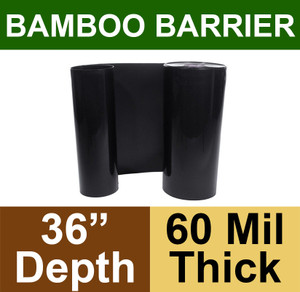
For light duty bamboo or invasive species control applications. For more than a decade thousands of our customers have installed 30 mil barrier to control bamboo and we have received very few reports of bamboo puncturing the barrier.
Nevertheless, a barrier of 40 mil in thickness is typically recommended by landscape architects and arborists for bamboo control applications.
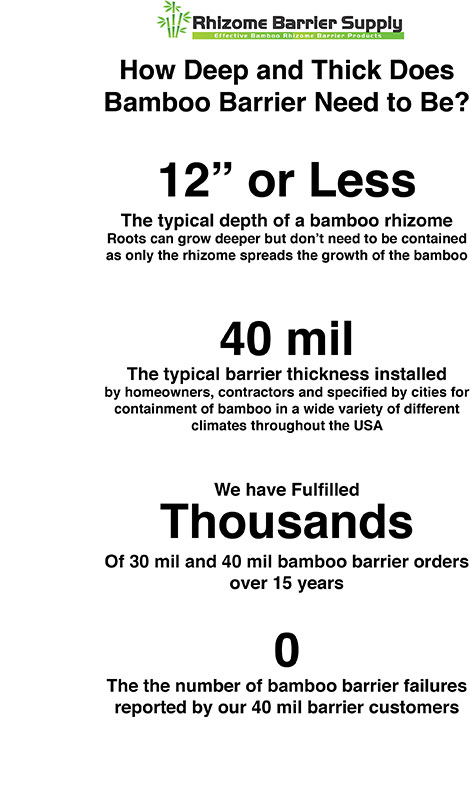
Depth of Barrier: 36"
Material Thickness: 30 mil (1/32 of an inch)
Material Length: 100 foot roll (can be joined)
Material: HDPE
Shipping: UPS
- Easy to cut with a standard utility knife
- Joins vertically or horizontally with HDPE sealant tape
- Made in the USA
FREE SHIPPING
Shipping Transit Times: We Ship Fast!
Most orders ship same day if placed before 12:00 PM EST. Transit times are displayed in business days and are approximate.
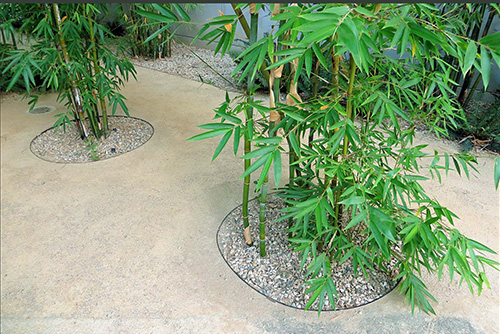
30 mil HDPE rhizome barrier is designed to contain lightly aggressive bamboo, invasive species and act as a water barrier to protect foundations, putting greens and other water sensitive areas in the landscape.
Bamboo is a fantastic garden plant due to it’s ability to grow quickly and provide privacy as well as aesthetic beauty. When bamboo is left un-contained it can spread throughout a landscape providing a major maintenance issue as well as damage to hardscapes or other delicate plantings.
Our rhizome barrier is composed of heavy-duty HDPE and provides a smooth surface which acts as a very effective root-stop. The bamboo rhizomes (roots) will not penetrate the barrier but instead grow along the side of the barrier instead.
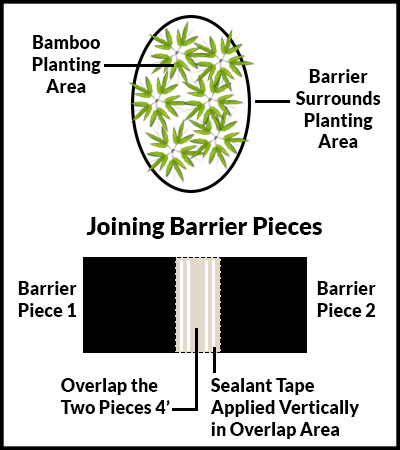 Installation:
Installation:1. Dig a trench around the area where you are planning to plant the bamboo or where the bamboo is already planted. The trench should be 2” less deep than the depth of the barrier that is to be installed. For example if you are installing a 24” barrier, dig a 22” trench.
2. Place the barrier in the trench. If connecting two segments of barrier be sure to overlap the segments by 4 feet, use HDPE sealant tape vertically and horizontally to connect the seam. The taped overlap will prevent the bamboo rhizomes from breaking through the seam.
3. Plant the bamboo according to nursery planting specifications. Be sure to pay attention to any soil deficiencies, compaction and drainage.
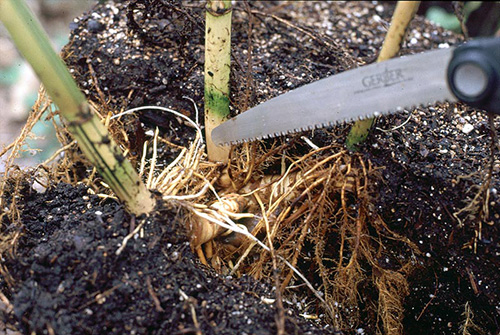 Maintenance:
Maintenance:In order to control bamboo effectively, proper maintenance must be performed on a seasonal basis. Bamboo rhizomes spread outward from the center of the plant in either spring, summer or fall depending on your location.
Simply dig a trench around the area where the bamboo is planted, place the barrier in the trench and back-fill. Be sure to install the barrier 2” above the finish grade of the soil. This will allow the gardener to monitor and catch bamboo rhizomes that are attempting to “jump the barrier” Cut any rhizomes attempting to overgrow the barrier and remove. If this process is performed annually, the procedure should be easy due to the fact that the rhizomes are soft and easy to remove.